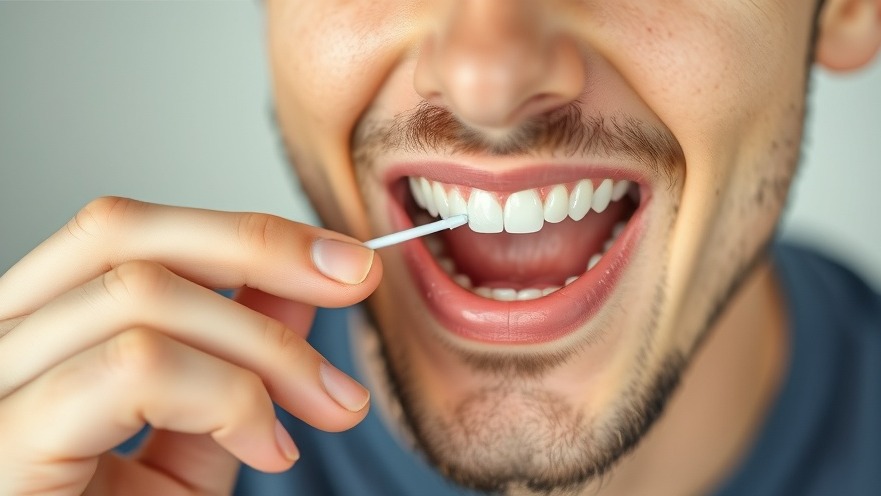
The Hidden Link: Oral Hygiene and Stroke Risk
When we think of oral health, our minds often drift to minty toothpaste and pearly whites. However, recent research reveals that maintaining proper oral hygiene goes far beyond aesthetics; it may wield significant power in preventing strokes. Though traditional practices focus primarily on brushing, experts now emphasize the importance of flossing at least once a week as a simple yet vital step to safeguard against stroke.
Understanding the Impact of Flossing on Stroke Prevention
Dr. Souvik Sen, a leader in the latest study evaluating the importance of flossing, found that this often-overlooked aspect of dental care is crucial. The findings from the Atherosclerosis Risk in Communities (ARIC) study indicate that consistent flossing can reduce the risk of ischemic stroke by 22% and cardioembolic strokes by an eye-catching 44%. These statistics highlight the significant difference a straightforward habit can make in an individual's life.
The Broader Picture: Connecting Oral Health to Heart Health
Oral health issues are rampant, with a staggering 3.5 billion people globally suffering from conditions like gum disease. This study not only sheds light on how dental care relates to strokes but also on how systemic inflammation—a robust enemy in cardiovascular health—can be mitigated through regular oral hygiene efforts. In fact, brushing alone has proven less effective in comparison to the combined efforts of brushing and flossing.
Building Better Patient Relationships Through Education
For concierge medical practitioners, educating patients about the link between oral hygiene and overall health can bolster the relationships that define their practice. Taking time to explain these significant connections empowers patients to make informed decisions. Patients often appreciate when their healthcare providers present holistic views that encompass both physical and mental well-being.
Right Here, Right Now: Easy Steps for Patients
Encouraging patients to adopt a regular flossing routine is an actionable insight that can offer tangible health benefits. Incorporate oral hygiene reminders into routine check-ups and discussions about lifestyle choices. This approach not only strengthens the patient-provider relationship but encourages a shared commitment to wellness.
Exploring Future Trends: A Healthier Tomorrow
As more research emerges linking oral health to systemic conditions like stroke, expect a shift in health recommendations across the board. The healthcare industry may increasingly advocate for integrated care, where oral health becomes a standard part of assessments in cardiovascular health. This trend could herald a new era in patient care, where prevention strategies are deeply rooted in everyday habits.
Summing It Up: The Power of Keeping It Simple
In a world where complex medical advice can overwhelm, simplicity often reigns supreme. Flossing, a practice that demands only a few minutes with minimal cost, embodies this principle. Your dedication to patient education can translate into deeper connections, helping individuals not just to maintain their smile, but also potentially save their lives. Encouraging patients to adopt such fundamental habits could redefine their health journey.
 Add Row
Add Row  Add
Add 






Write A Comment